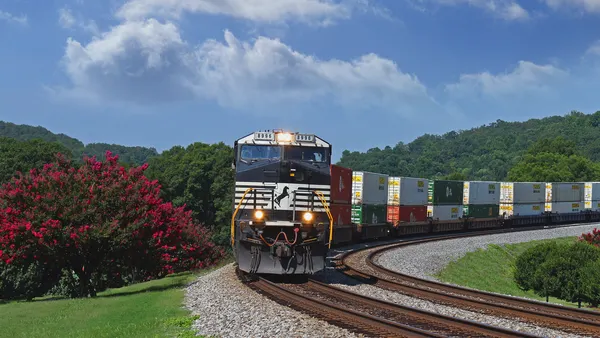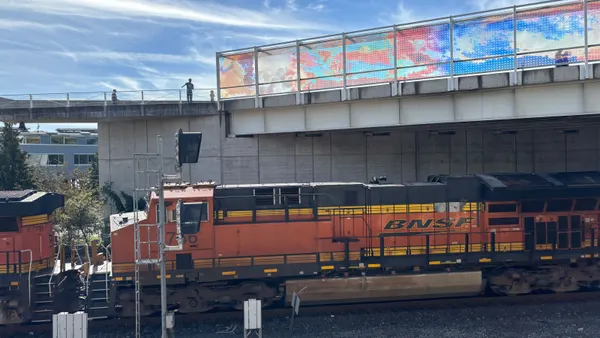Dive Brief:
- Union Pacific is shuttering its Cold Connect service, which shuttled reefer cargo from the West Coast to a facility in New York, the company confirmed to Supply Chain Dive Monday. Cold Connect was sold as a way for shippers of perishable goods to ship across the country, using a network of temperature-controlled storage and transportation solutions provided by the company.
- Union Pacific acquired the Cold Connect assets from Railex in 2017. "However, with COVID-19 impacting volume and truck prices, it is no longer sustainable to continue operations," a Union Pacific spokesperson said in an email. Cold Connect was a service of Loup Logistics, which is a Union Pacific subsidiary.
- Customers of the service were notified that May 8 was the last day to place inbound orders, the company said. "Most Cold Connect-related positions have been eliminated," but some will remain onboard to make sure the remaining shipments in the pipeline reach the final destination.
Dive Insight:
Less than a year ago, Union Pacific executives spoke about refrigerated rail as a long-term growth opportunity, and then as a divestment.
"We also expect stronger beer shipments along with long-term penetration growth across multiple segments of our food and refrigerated business," Union Pacific EVP Kenny Rocker said in January.
But just a few months later, Rocker's tone changed slightly. By April, food and refrigerated volume were "impacted by a challenging truck environment," he said on an earnings call.
The coronavirus pandemic resulted in a downturn in trucking demand in April, which resulted in falling rates on the trucking spot market and it was hard for rail companies to compete. Reefer spot rates for trucking freight were down 10% in April compared to the same month last year, according to DAT.
The companies shipping refrigerated freight over the rail, though, are mostly contract shippers, according to Tony Hatch, an independent rail freight analyst with ABH Consulting. "Larger rail customers don't mover their goods back and forth [between rail and truck] with that kind of nimbleness," Hatch said in an interview with Supply Chain Dive.
"My guess is they had a cost structure and weren't able to gin up enough business and rates to justify it," he said.
Cold storage and reefer transportation has been seen as a growth opportunity for the logistics business, from warehouses to ocean freight, in recent years, thanks in part to the rise in online grocery. One 2019 report from CBRE estimated there will be a need for 100 million additional square feet of cold storage warehousing space over the next five years.
Rail has seen this growth as an opportunity, with new companies such as Tiger Cool Express coming onto the market to offer temperature-controlled intermodal services and investments from Class I railroads.
J.B. Hunt is currently building up its refrigerated intermodal fleet and plans to add 1,500 temperature-controlled containers throughout the year, J.B. Hunt CFO David Mee said on an earnings call in January.
"It's strange [Union Pacific] couldn't just ride this out, if there was that growth potential because we know this too shall pass," Hatch said. "It's a deep valley, but there is another side to it, right? We will get better. Railroads should have the luxury of long-term thinking."
A 2017 promotional video from Union Pacific says the company's fleet makes up 60% of the refrigerated rail capacity in North America. Union Pacific declined to comment when asked what would happen with the reefer assets that were part of the Cold Connect service.
Emma Cosgrove contributed to this report.












